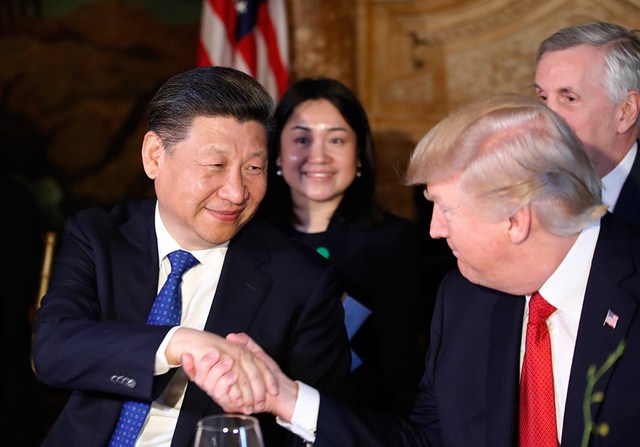
Picture Credit: Xinhua
Disputes should be settled through discussions rather than trade wars. This was the very wise and constructive theme of the China-US joint statement on economic consultations issued on May 19.
While analyzing why the consultation produced results, Vice Premier Liu He, who was visiting the US as the special envoy of President Xi Jinping, said it’s natural for the two countries to enjoy cooperation on the whole and to experience occasional friction. I would like to talk about the relationship between development through cooperation and occasional friction.
The four decades of diplomatic relations between China and the US have also been forty years of reform and opening-up in China. Bilateral ties have been growing and experienced twists and turns. ‘Development amid twists and turns’ has become the hallmark of this relationship. Cooperation is absolutely necessary and brings growth. At the same time, friction exists objectively and lead to twists and turns.
China-US relations are generally oriented towards cooperation and development, which is determined by their respective national interests and the practical needs of today’s world. President Trump vows to ‘make America great again’ while Xi advocates the ‘Chinese dream of great rejuvenation of the Chinese nation’. Both want their own country to be richer and stronger. As one country is in the Americas and the other in Asia, both strategies may be implemented without the two countries coming into conflict. The key lies in how the other country is viewed and treated.
The US has a special position in today’s world and a huge influence on the existing international order, which has historic origins and is recognized by China. Admittedly and indisputably the existing international order has its shortcomings and should be readjusted and improved. With its comprehensive national strength in the economic, scientific, and military spheres, America’s superpower status is an objective truth; and China respects that. However, it is also perfectly justified to reject on the basis of the UN Charter and basic norms of international law the transgressive and overbearing behaviors of the US.
China has continued along its path of peaceful development, with eye-catching achievements. The rise by no means requires the exclusion of the US. On the contrary, it has involved sincere cooperation with the US. The unrivalled trade volume of over $600 billion gives a rough idea of the strong complementarity and deep interdependence between the two countries. The US trade deficits have been caused by many things. A May 20 article in the Wall Street Journal argued that the trade deficit with China should not be exaggerated. Chinese leaders pointed out on many occasions that the problem would be readily resolved if the US sells more hi-tech products to China.
On the world stage, China-US cooperation is critical. The two countries have for long cooperated on complicated international issues like the denuclearization of the Korean Peninsula, climate change, and global pandemics.
Admittedly the China Threat arguments are fairly popular in the US. There are many reasons behind this, including misunderstanding. Two concerns are quite prominent. The first one is the spillover effect of the Chinese model of development, which is the most important factor influencing the level of political trust between the two countries. Indeed, China has registered remarkable achievement and progress in exploring a development model suited to its national conditions. But China has all along maintained that nations should choose their own paths independently and never boasted that the so-called Beijing Consensus would replace the Washington Consensus. The Chinese government has stated again and again that it will not export its own mode of development and will be true to its word.
The other concern is whether China’s development will challenge America’s strategic position in the world. China has given a firm negative answer with high-level policy declarations on peaceful development, and its Belt and Road initiative.
The twists and turns of China-US relations offer an important lesson: we must fully understand and properly apply the law of virtuous interaction between countries.
Virtuous interaction is needed for state-to-state relations to develop smoothly. Countries start with maintaining their own dignity and interests and respecting each other’s dignity and interests. Then they have a relationship in which cooperation happens side by side with competition and friction and compromises are commonplace. If they cooperate with good faith, compete by the rules, avoid confrontation even amid friction, and make appropriate compromises, the result will be mutual benefit.
The history of diplomatic ties between China and the US offers ample examples of this. Whenever policies and measures were consistent with virtuous interaction, the relations developed smoothly, and whenever it broke from it, they were plagued by various troubles.
The joint statement on May 19 was consistent with virtuous interaction. But there is also some noise in the media. Some people are obsessed with debating who is the winner and who the loser in the consultation, doing a disservice to the gratifying step forward.
Hopefully there will be more good news. But people are also concerned that there will be more twists and turns. Policy makers are obliged to follow the natural logic of development and cooperation, accept the natural existence of friction, and make efforts to reduce them since that’s where the fundamental interests of China and the US lie.

